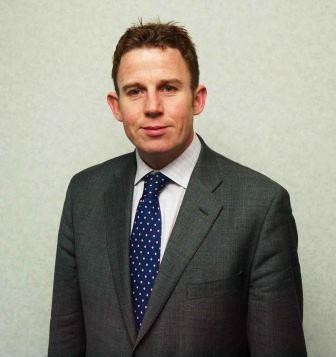Why choose investment companies for exposure to emerging markets?
Ahead of the World Cup, David Prosser looks at investment in Brazil.
A view from David Prosser, former Business Editor of The Independent, Personal Finance Editor of the Daily Express, and Deputy Editor of Money Observer magazine.
 Has the forthcoming football World Cup whetted your appetite for an investment in Brazil? This, after all, is a leading member of the fabled ‘Bric’ group of emerging market economies expected to produce much faster growth rates than developed markets – it’s a country with valuable natural resources, a young workforce, and a growing engagement with international trade.
Has the forthcoming football World Cup whetted your appetite for an investment in Brazil? This, after all, is a leading member of the fabled ‘Bric’ group of emerging market economies expected to produce much faster growth rates than developed markets – it’s a country with valuable natural resources, a young workforce, and a growing engagement with international trade.
For now, the investment experts jury remains out on the prospects for Brazil – economic growth has slowed over the past year or so, as the worldwide commodities boom has eased, and this autumn’s Presidential election, rather than the World Cup, is the key event for market watchers in the country this year.
Still, for those investors who do want some exposure to Brazil in their portfolios, either today or in the future, what is the best way of achieving it? Well, an investment company is certainly a good option.
For one thing, the closed-end fund sector offers a range of choices for investors looking for Brazilian market exposure – as a briefing on members’ holdings published this week by the Association of Investment Companies reveals.
There are both specialists, such as JPMorgan Brazil, which is invested entirely in the country, and regional funds, such as BlackRock Latin American, with just over 60 per cent of assets in Brazil. In addition, there are global emerging market funds that offer smaller exposures to Brazil alongside holdings in many other developing economies.
However, it’s not the range of choice on offer that makes closed-ended funds the ideal way to invest in Brazil but the very nature of investment companies. Their structure is very well-suited to this type of investment.
That’s because investments in emerging markets can often be volatile and sentiment can change quickly and dramatically. When these markets perform well, funds investing in them are often enormously popular; when setbacks occur, the rush for the exit can be headlong.
For an open-ended fund, these ebbs and flows can be enormously difficult to deal with. When investors are pumping new money in, the fund manager has to find opportunities to invest it, even where those opportunities are in short supply. When investors want out in big numbers, the fund manager may have to dispose of assets at fire-sale prices in order to meet the redemptions, even where he believes the market reaction has been overdone and that a recovery will occur over time.
By contrast, closed-ended funds do not suffer in this way. With a fixed sum under management, the investment company’s manager is free to concentrate all his energies on asset allocation and stock selection, without the need to worry about inflows and outflows.
Over time, this can be a major advantage and explains why investment companies are often the funds of choice for exposure to most emerging markets – and not only Brazil. That’s true both of financial planners selecting funds on behalf of their clients and of fund managers thinking about what type of vehicles to operate in order to offer emerging market exposure.
In footballing terms, closed-ended fund managers are akin to coaches who are left free to concentrate on team selection and the right tactics for the conditions and opposition on the day of the game. Open-ended fund managers have to do that too, while also worrying about whether the referee might blow his whistle early, or even throw in some extra balls.

